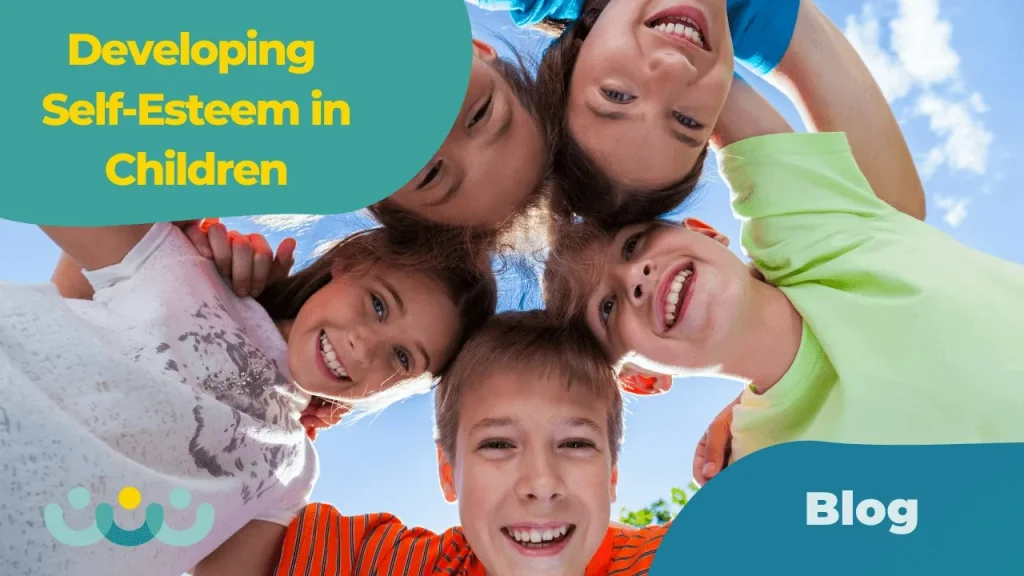Self-Reflection Techniques to Overcome Challenges and Foster Resilience

Finding Strength Through Self-Reflection
In a world filled with uncertainties, challenges can often feel overwhelming. However, self-reflection serves as a powerful tool to navigate these turbulent waters. By turning inward, individuals can gain insights that pave the way for resilience. It is particularly relevant in Nigeria, where socio-economic challenges and vivid cultural complexities can weigh heavily on individuals’ minds. Understanding one’s thoughts and feelings can greatly equip one to face such adversities head-on.
Consider these self-reflection techniques that can help anyone, including Nigerians facing unique societal issues:
- Journaling: Writing down thoughts and emotions can clarify feelings and identify patterns in behavior. In Nigeria, where life can be fast-paced and pressures high, journaling might provide a sanctuary to decompress. Many have found that keeping a journal not only helps in expressing daily frustrations but also fosters a spirit of gratitude by encouraging one to reflect on positive experiences amidst the chaos.
- Meditation: Taking time for mindfulness can enhance focus and reduce stress, allowing for better decision-making. Various forms of meditation can be practiced even in bustling environments. For instance, practicing deep breathing or guided meditations using local Nigerian music can create a calming atmosphere, promoting mental clarity and emotional balance.
- Seeking Feedback: Engaging with trusted friends or mentors can provide new perspectives and constructive criticism. In a culture that values community and relationships, reaching out for feedback can offer invaluable insights aligning with local experiences. It can initiate discussions about shared challenges such as unemployment, education, or health care within Nigeria, fostering a collective approach to personal growth.
These techniques can encourage individuals to confront their challenges with a clear mind. They are not just aids for self-improvement; they are gateways to forging deeper connections with oneself and with the community. In a country like Nigeria, where cultural heritage and storytelling are vital parts of identity, self-reflection can also tap into this past, enriching one’s understanding of personal and shared histories.
Resilience isn’t merely about bouncing back; it’s about growing stronger. By employing these self-reflection strategies, people can transform obstacles into opportunities for growth. For instance, someone who faced job loss can use journaling and feedback to pivot into entrepreneurship or pursue further education. Ultimately, these practices can lead to a more fulfilling life, encouraging individuals to emerge from their trials not just intact, but thriving and more self-aware.
In summary, self-reflection is a journey of self-discovery that cultivates resilience. As people in Nigeria navigate their unique challenges, embracing these techniques can foster a sense of empowerment, aligning personal growth with the rich, multifaceted fabric of Nigerian society.

YOU MAY ALSO LIKE: Read read another article
Embracing the Process of Self-Discovery
As individuals navigate through life’s myriad challenges, self-reflection becomes an essential compass in guiding one towards resilience. It is a conscious and deliberate process that requires commitment and openness, enabling individuals to explore their thoughts, emotions, and behaviors deeply. In Nigeria, where the socio-economic landscape presents distinctive trials ranging from educational disparities to cultural expectations, fostering resilience through self-reflection can be particularly beneficial.
There are various techniques that can significantly enhance self-reflection, each tailored to help individuals better understand their experiences and emotional responses. One such technique is mental imagery. Visualizing positive outcomes or reflecting on past successful experiences can provide motivation and clarity. For example, a Nigerian student facing challenges in the educational system may envision themselves successfully graduating or excelling in a chosen career. This mental rehearsal can serve as a powerful reminder of their potential and aspirations.
Another effective technique is mind mapping, which allows for a visual representation of thoughts and feelings. By creating a diagram that captures key life events, emotions, and challenges, individuals can gain a better understanding of how these elements are interconnected. This method can be particularly useful in Nigeria, where storytelling is a rich part of the cultural heritage. As people map out their experiences, they may uncover personal and communal narratives that reinforce their resilience and empower them to tackle current challenges.
- Reflection through Art: Engaging in creative activities—whether painting, singing, or dancing—can unlock hidden emotions and provide an avenue for self-exploration. In Nigerian culture, art often serves as a medium for expression, allowing individuals to communicate their feelings about societal pressures and personal hardships.
- Setting Goals: Establishing specific and measurable personal goals is a proactive form of self-reflection. It helps individuals focus on what they can achieve despite obstacles. For instance, someone dealing with job insecurity might set a goal to learn a new skill or start a side business, turning their situation into an opportunity for growth.
- Nature Walks: Taking walks in nature can stimulate deep thinking and promote mental wellness. In Nigeria, where many communities are blessed with scenic landscapes, this time spent in nature can serve as an essential reset button, fostering a sense of peace that enhances the self-reflection process.
Implementing these self-reflection techniques can lead to profound personal insights and greater well-being. They pave the way for individuals to reassess their coping strategies and adapt to life’s ebb and flow. This is increasingly important as Nigerian society continues to evolve, providing a backdrop where resilience is not merely a survival instinct but a contributor to vibrant community life.
Ultimately, self-reflection allows individuals to embrace growth despite adversities, turning challenges into stepping stones for a fulfilling life. By utilizing these techniques, Nigerians can learn to harness their inner strength, foster resilience, and emerge from difficulties with renewed vigor and insight.
Self-Reflection Techniques to Overcome Challenges and Foster Resilience
Self-reflection serves as a powerful tool for individuals facing challenges, allowing them to analyze emotions, behaviors, and motivations critically. People who engage in self-reflection often discover profound insights that contribute to personal growth and resilience. Techniques such as journaling, meditation, and mindfulness can significantly enhance one’s ability to cope with adversity. Journaling, for example, not only records day-to-day events but also captures emotional responses, helping individuals to identify patterns in their thoughts and reactions. This practice can be particularly beneficial for managing stress and anxiety. Furthermore, through meditation, individuals can cultivate awareness and acceptance, which allows them to confront obstacles with a clear mind, thus enhancing emotional regulation. Mindfulness techniques further support self-reflection by grounding individuals in the present moment. By focusing attention on the here and now, people can detach from overwhelming feelings and confront challenges with a balanced perspective. Research indicates that regularly practicing mindfulness leads to improved cognitive flexibility and increases resilience against life’s uncertainties. To dive deeper into these self-reflection strategies, it is essential to explore how they can be tailored to individual needs, thereby maximizing their impact in overcoming challenges. Adopting these techniques can empower individuals to transform difficulties into opportunities for skill development, self-discovery, and ultimately, enhanced resilience.
| Category | Description |
|---|---|
| Journaling | A personal diary that helps in identifying emotional patterns and responses. |
| Mindfulness | Techniques to be present, reducing anxiety and enhancing emotional regulation. |
| Meditation | Practices that promote clarity and acceptance, aiding in coping with adversity. |
These techniques play a crucial role in enabling individuals to develop a deeper understanding of themselves, fostering resilience in the face of life’s challenges.
RECOMMENDED: Check out this similar article
Integrating Mindfulness for Enhanced Self-Reflection
In addition to various techniques, adopting a mindfulness practice can significantly complement self-reflection, allowing individuals to cultivate a deeper understanding of their internal processes. In a fast-paced environment, such as Nigeria, where stressors ranging from economic instability to cultural demands can weigh heavily, mindfulness serves as an anchor, enabling individuals to center themselves amidst chaos.
One of the most effective mindfulness practices is meditation. Taking a few minutes each day to engage in meditation can help clear mental clutter and enhance focus. For instance, guided meditation apps are increasingly popular and accessible, offering tailored sessions that cater to the unique challenges faced by Nigerians, from dealing with anxiety about the future to fostering gratitude despite tough circumstances. As individuals meditate, they may find clarity in their thoughts, making it easier to confront challenges head-on.
Another impactful mindfulness technique is deep breathing exercises. These simple yet powerful exercises can instantly calm the mind and body, allowing individuals to pause and reflect on their feelings before reacting to stressful situations. For example, a young entrepreneur facing criticism for a new business venture might use deep breathing to create emotional distance from negativity, leading to constructive self-reflection and informed decision-making.
- Journaling: Engaging in regular journaling complements mindfulness by providing a platform for individuals to articulate their thoughts and feelings. This technique encourages a habit of observing internal dialogue, helping to identify negative thought patterns and unproductive emotions. As Nigerians face unique societal expectations, this practice also allows for the exploration of personal values versus cultural pressures.
- Body Scan Technique: This technique involves systematically focusing on different parts of the body to identify bodily sensations or areas of tension. It can be particularly useful for those in Nigeria who experience physical manifestations of stress due to societal pressures or work-related demands. By recognizing these sensations, individuals can learn to connect emotional experiences with physical reactions, fostering a holistic understanding of themselves.
- Daily Affirmations: Reciting daily affirmations is a great way to instill positivity and reinforce resilience. By repeating statements that highlight personal strengths and aspirations, individuals can gradually shift their mindset. In Nigeria, affirmations in local dialects may resonate more deeply, showcasing the intricacies of cultural identity while promoting self-worth.
Integrating mindfulness techniques into regular self-reflection contributes greatly to emotional intelligence, aiding individuals in developing resilience. This process encourages a non-judgmental awareness of one’s thoughts and feelings, enabling individuals to approach challenges from a place of calmness rather than reaction. Moreover, this practice aligns closely with traditional African values of community and connection, allowing Nigerians to draw strength from cultural roots while navigating personal hurdles.
As self-reflection evolves into a dynamic practice that intertwines with mindfulness, the potential for transformation grows exponentially. Challenging moments shift from being overwhelming to becoming opportunities for growth, self-discovery, and resilience. Achieving inner peace through these combined techniques not only benefits individuals but also promotes a collective strength that resonates through families and communities across Nigeria.
RECOMMENDED: Check out this similar article
Conclusion: Embracing Self-Reflection for Growth and Resilience
In a world characterized by constant upheaval and pressure, particularly in Nigeria, embracing self-reflection techniques emerges as a vital strategy for personal growth and resilience. As we explored, the integration of mindfulness practices not only enhances self-awareness but also empowers individuals to navigate challenges effectively. Techniques such as meditation, deep breathing exercises, and journaling provide tools that foster a deeper understanding of both emotional responses and physical manifestations of stress.
Moreover, the importance of daily affirmations and the body scan technique offers an innovative approach to addressing the psychological barriers many Nigerians face when dealing with societal expectations and personal ambitions. These methods create a fertile ground for cultivating emotional intelligence and fortifying personal resilience, allowing individuals to meet challenges with a balanced perspective.
Recognizing the intrinsic value of collective strength, these self-reflection practices resonate deeply within the rich cultural tapestry of Nigeria. They allow individuals to reconnect with their roots while promoting personal development. Ultimately, self-reflection not only transforms adversity into growth opportunities but also cultivates a sense of community and shared resilience.
As you embark on your journey of self-discovery, consider incorporating these techniques into your daily routine. By doing so, you will not only enhance your ability to overcome challenges but also contribute to a more resilient and supportive community, where every individual’s growth is celebrated. In this pursuit of self-awareness and inner peace, we enable ourselves and others to rise above life’s trials with grace and strength.


